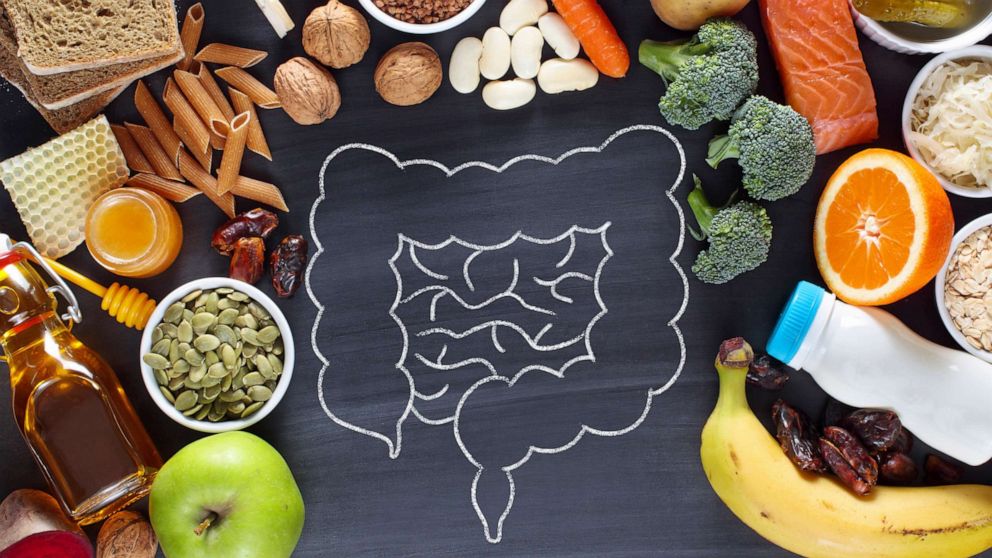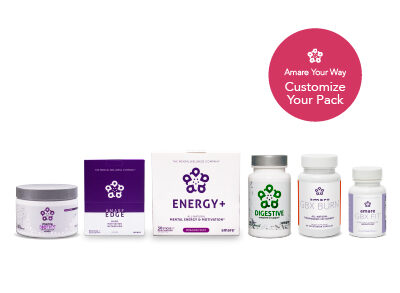In the realm of health and wellness, the intricate connection between the gut and the brain has garnered increasing attention in recent years. The profound impact of gut health on mental well-being is a topic that continues to fascinate researchers and health enthusiasts alike. Understanding this complex interplay can offer valuable insights into maintaining not just physical health but also mental vitality.
The human gastrointestinal tract, often referred to as the gut, is home to trillions of microorganisms collectively known as the gut microbiota. These microbes play a crucial role in various bodily functions, including digestion, nutrient absorption, and immune system regulation. However, emerging research suggests that the influence of the gut microbiota extends far beyond the confines of the digestive system, reaching into the intricate network of the brain.
The Gut-Brain Axis: A Biochemical Highway
At the heart of the gut-brain connection lies the gut-brain axis, a bidirectional communication pathway that facilitates constant interaction between the gut and the brain. This communication occurs through various channels, including neural, hormonal, and immune pathways.
One of the key players in this biochemical highway is the vagus nerve, a long cranial nerve that connects the brainstem to the abdomen, among other organs. Through the vagus nerve, signals originating in the gut can travel to the brain, influencing mood, cognition, and behavior. Conversely, the brain sends signals to the gut, modulating gastrointestinal function and microbial composition.
The Role of Gut Microbiota in Mental Wellbeing
Central to the gut-brain connection is the role of gut microbiota in shaping mental health. Research suggests that alterations in the composition and diversity of gut microbes, known as dysbiosis, may contribute to various mental health disorders, including anxiety, depression, and even neurodegenerative diseases.
The gut microbiota produces a myriad of bioactive compounds, such as neurotransmitters and short-chain fatty acids, that can influence brain function and behavior. For instance, certain bacteria within the gut produce gamma-aminobutyric acid (GABA), a neurotransmitter that plays a crucial role in regulating anxiety and stress responses. Additionally, microbial metabolites like butyrate have been shown to exert neuroprotective effects and support cognitive function.
Furthermore, the gut microbiota plays a vital role in regulating the body’s stress response system, known as the hypothalamic-pituitary-adrenal (HPA) axis. Dysregulation of the HPA axis is implicated in conditions such as chronic stress and depression, highlighting the importance of gut microbial balance in maintaining mental well-being.
Nurturing Gut Health for Mental Vitality
Given the profound impact of gut health on mental well-being, prioritizing gut-friendly habits becomes paramount in fostering optimal brain function and emotional resilience. Here are some strategies to support a healthy gut microbiota and promote mental vitality:
Dietary Diversity: Consuming a diverse array of plant-based foods rich in fiber, prebiotics, and probiotics can help nourish beneficial gut microbes. Incorporating fermented foods like yogurt, kefir, and sauerkraut into your diet can introduce beneficial probiotic bacteria, while fiber-rich foods such as fruits, vegetables, and whole grains serve as fuel for gut microbes.
Stress Management: Chronic stress can disrupt the delicate balance of the gut microbiota and exacerbate mental health symptoms. Engaging in stress-reducing activities such as mindfulness meditation, yoga, and deep breathing exercises can help mitigate the impact of stress on gut-brain communication.
Regular Exercise: Physical activity not only benefits cardiovascular health but also promotes a healthy gut microbiota. Aim for regular exercise to support gut motility and enhance microbial diversity.
Quality Sleep: Prioritizing adequate sleep is essential for maintaining both gut health and mental well-being. Poor sleep habits have been associated with alterations in gut microbiota composition and increased susceptibility to mood disorders.
Supplementation: In addition to lifestyle interventions, targeted supplementation can also support gut health and mental resilience. Products like the Amare Happy Fit Pack™ contain a blend of probiotics, prebiotics, and other nutrients specifically formulated to support gut-brain balance and overall wellbeing.in the face of life’s challenges. Prioritizing gut health isn’t just about digestion; it’s about nourishing the very foundation of our mental vitality and emotional equilibrium.
Limiting Sugar and Processed Foods: High-sugar and processed foods can negatively impact gut health by promoting the growth of harmful bacteria while suppressing beneficial ones. Minimizing the intake of these foods can help maintain a healthy microbial balance and support mental wellness.

Hydration: Adequate hydration is essential for maintaining proper digestion and supporting a healthy gut environment. Aim to drink plenty of water throughout the day to keep your digestive system functioning optimally.
Mindful Eating: Practicing mindful eating habits, such as chewing slowly and savoring each bite, can enhance digestion and nutrient absorption while reducing stress on the gut. Additionally, being attuned to hunger and fullness cues can help prevent overeating and promote a balanced gut environment.
Seeking Professional Guidance: If you’re experiencing persistent gut issues or mental health symptoms, seeking guidance from a healthcare professional or registered dietitian can provide personalized recommendations and support. They can help identify underlying issues, recommend appropriate dietary and lifestyle interventions, and ensure comprehensive care for both gut and mental health.
Community and Connection: Cultivating meaningful social connections and fostering a sense of belonging can also positively impact gut health and mental well-being. Surrounding yourself with supportive friends and family members, participating in group activities, and engaging in volunteer work or community events can contribute to overall happiness and resilience.
Environmental Considerations: Beyond diet and lifestyle factors, environmental influences can also impact gut health and mental wellbeing. Exposure to pollutants, toxins, and environmental stressors can disrupt the delicate balance of the gut microbiota and contribute to inflammation and oxidative stress in the body. Taking steps to minimize exposure to environmental toxins, such as reducing use of plastics, choosing organic weight pills produce, and supporting eco-friendly practices, can support both gut health and overall wellness.
Embracing Nature: Spending time in nature has been shown to have a myriad of benefits for both physical and mental health. Whether it’s taking a leisurely stroll in the park, hiking through the woods, or simply basking in the beauty of natural landscapes, connecting with the outdoors can reduce stress, improve mood, and promote a sense of well-being. Additionally, exposure to natural environments may positively influence the diversity and composition of the gut microbiota, further underscoring the importance of incorporating nature into our daily lives.
Maintaining a Healthy Work-Life Balance: Balancing work, family, and personal commitments is essential for overall well-being. Chronic stress from work-related pressures and hectic lifestyles can take a toll on gut health and mental wellness. Prioritizing self-care, setting boundaries, and carving out time for relaxation and leisure activities are crucial for mitigating stress and nurturing both gut and brain health.
Cultivating Gratitude and Positivity: Practicing gratitude and fostering a positive mindset can have profound effects on mental health and overall happiness. Research suggests that individuals who regularly engage in gratitude practices experience lower levels of stress, improved mood, and better psychological well-being. Cultivating an attitude of gratitude can also positively influence the gut microbiota, promoting a balanced and resilient gut environment.
Continued Learning and Growth: Embracing lifelong learning and personal growth can stimulate cognitive function, enhance creativity, and foster a sense of purpose and fulfillment. Whether it’s exploring new hobbies, pursuing educational opportunities, or engaging in intellectually stimulating activities, investing in personal development is essential for maintaining mental vitality and emotional resilience.
Incorporating these additional strategies into your wellness routine alongside products like the Amare Happy Fit Pack™ can further support the intricate connection between gut health and mental wellbeing. By adopting a comprehensive approach to health that encompasses dietary, lifestyle, environmental, and emotional factors, you can optimize your gut-brain axis and cultivate a state of holistic wellness. Remember that small, consistent steps towards nurturing your gut and supporting your mental health can yield significant long-term benefits, allowing you to thrive and flourish in all aspects of life. we
